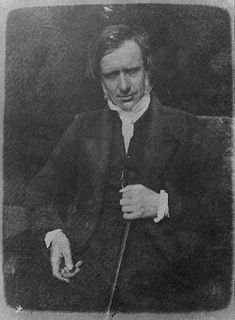A Quote by Madeleine L'Engle
Easter is always the answer to "My God, my God, why hast thou forsaken me!"
Related Quotes
On the Cross the Jesus of the Four Gospels, who was God, cried out My God, my God, why hast thou forsaken me? God cannot forsake himself, Jesus was God himself. Yet God forsook Jesus, and the latter cried out to know why he was forsaken. Any able divine will explain that of course he knew, and that he was not forsaken. The explanation renders it difficult to believe the dying cry, and the passage becomes one of the mysteries of the holy Christian religion, which, unless a man rightly believe, without doubt he shall perish everlastingly.
I am a Christian because of that moment on the cross when Jesus, drinking the very dregs of human bitterness, cries out, My God, my God, why hast thou forsaken me? (I know, I know: he was quoting the Psalms, and who quotes a poem when being tortured? The words aren’t the point. The point is he felt human destitution to its absolute degree; the point is that God is with us, not beyond us, in suffering.)
Sometimes I go to God and say, "God, if Thou dost never answer another prayer while I live on this earth, I will still worship Thee as long as I live and in the ages to come for what Thou hast done already. God’s already put me so far in debt that if I were to live one million millenniums I couldn’t pay Him for what He’s done for me.
Sin! Sin! Thou art a hateful and horrible thing, that abominable thing which God hates. And what wonder? Thou hast insulted His holy majesty; thou hast bereaved Him of beloved children; thou hast crucified the Son of His infinite love; thou hast vexed His gracious Spirit; thou hast defied His power; thou hast despised His grace; and in the body and blood of Jesus, as if that were a common thing, thou hast trodden under foot His matchless mercy. Surely, brethren, the wonder of wonders is, that sin is not that abominable thing which we also hate.
Yet, for I know thou art religious
And hast a thing within thee called conscience,
With twenty popish tricks and ceremonies
Which I have seen thee careful to observe,
Therefore I urge thy oath; for that I know
An idiot holds his bauble for a god
And keeps the oath which by that god he swears,
To that I'll urge him: therefore thou shalt vow
By that same god, what god soe'er it be,
That thou adorest and hast in reverence,
To save my boy, to nourish and bring him up,
Or else I will discover naught to thee.
What an honourable thing is it to be fishers of men! How great an honour shouldst thou esteem it, to be a catcher of souls! We are workers together with God, says the apostle. If God has ever so honoured thee, O that thou knewest it, that thou mightst bless his holy name, that ever made such a poor fool as thee to be a co-worker with him. God has owned thee to do good to those who were before caught. O my soul, bless thou the Lord. Lord, what am I, or what is my father's house, that thou hast brought me to this?
The utter failure came at the Crucifixion in the tragic words, 'My God, my God, why hast thou forsaken me?' If you want to understand the full tragedy of those words you must realize what they meant: Christ saw that his whole life, devoted to the truth according to his best conviction, had been a terrible illusion. He had lived it to the full absolutely sincerely, he had made his honest experiment, but it was nevertheless a compensation. On the cross his mission deserted him. But because he had lived so fully and devotedly he won through to the Resurrection body.
Think not so much of what thou hast not as of what thou hast: but of the things which thou hast, select the best, and then reflect how eagerly they would have been sought, if thou hadst them not. At the same time, however, take care that thou dost not, through being so pleased with them, accustom thyself to overvalue them, so as to be disturbed if ever thou shouldst not have them.
Compassionate Saviour! We welcome Thee to our world, We welcome Thee to our hearts. We bless Thee for the Divine goodness Thou hast brought from heaven; for the souls Thou hast warmed with love to man, and lifted up in love to God; for the efforts of divine philanthropy which Thou hast inspired; and for that hope of a pure celestial life, through which Thy disciples triumph over death.




































